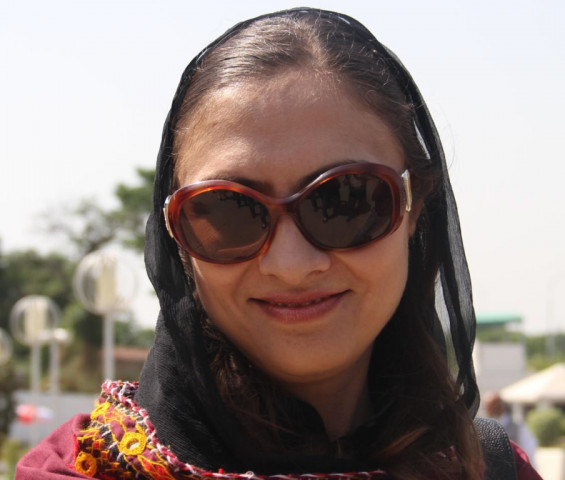Coincidence: Child marriage bill not a reaction to CII ruling: Marvi Memon
Says her party cannot even think of introducing ‘un-Islamic’ legislation.

Pakistan Muslim League-Nawaz's (PML-N) Marvi Memon. PHOTO: INP
A piece of legislation with an apparent rebuff to the Council of Islamic Ideology (CII) has resurrected the debate on underage marriage. But the movers of the bill on Wednesday quashed the impression that it was introduced in reaction to the CII ruling.
The CII recently ruled that laws on child marriage in Pakistan were un-Islamic.
Lawmakers from the ruling Pakistan Muslim League-Nawaz (PML-N), led by MNA Marvi Memon, introduced a bill in the National Assembly on Tuesday, suggesting harsher punishments for those who contract and solemnise such marriages through amendments in
the Child Marriage Restraint Act, 1929.
“We did not suddenly introduce this bill as a reaction to the CII ruling,” Memon told The Express Tribune on Wednesday.
“This bill was sent to the [NA] Secretariat a couple of months back… there is a process [in the Secretariat] which takes its due time and course,” she said, adding that the bill’s introduction in the lower house of parliament unintentionally coincided with the CII ruling.
“This is not a Western agenda … [because] I as a sitting member of the PML-N. I’d never dream of introducing an un-Islamic law in parliament,” Memon said. “We [the PML-N government] follow the Constitution and all Islamic laws in letter and spirit.”
“[But] yes, we feel strongly that we have to make sure that we protect our children and do it keeping the Holy Quran and Sunnah in mind. At no point will we move away from the Holy Quran and Sunnah,” she added.
Memon urged the country’s religious leaders to support the bill. “I’ve seen this injustice in my constituency and around the country in every single province... It’s time that we stand up for our women,” she said while speaking to Reuters.
“Early marriages lead to early conception, which cause many health issues and sometimes death.”
Committee meeting
Although the matter has not yet been fixed for deliberation in the standing committee, the movers have prepared their strategy for debate over the bill and said they would secure the assistance of religious scholars to allay the concerns of CII.
“We will put forward the recommendations of Islamic scholars and data from other Islamic countries before the parliamentary committee so that the issue can be settled in line with the teachings of Islam,” Memon said.
In response to a question regarding the CII chairman’s statement against the bill, she said, “Maulana Shirani has rightly said that parliament cannot legislate on a bill which is against Islam, but the question is who will determine that?”
It will be determined by the committee and in case it determines that the bill is against the teachings of Islam, there will be no legislation, she said. “There is no legislation at this juncture. The committee will merely discuss and there is no bar on holding discussion.”
She added that the final decision-making authority was parliament itself. “If it decides the bill is un-Islamic, then it has the right to throw this bill out.”
Published in The Express Tribune, March 27th, 2014.



















COMMENTS
Comments are moderated and generally will be posted if they are on-topic and not abusive.
For more information, please see our Comments FAQ